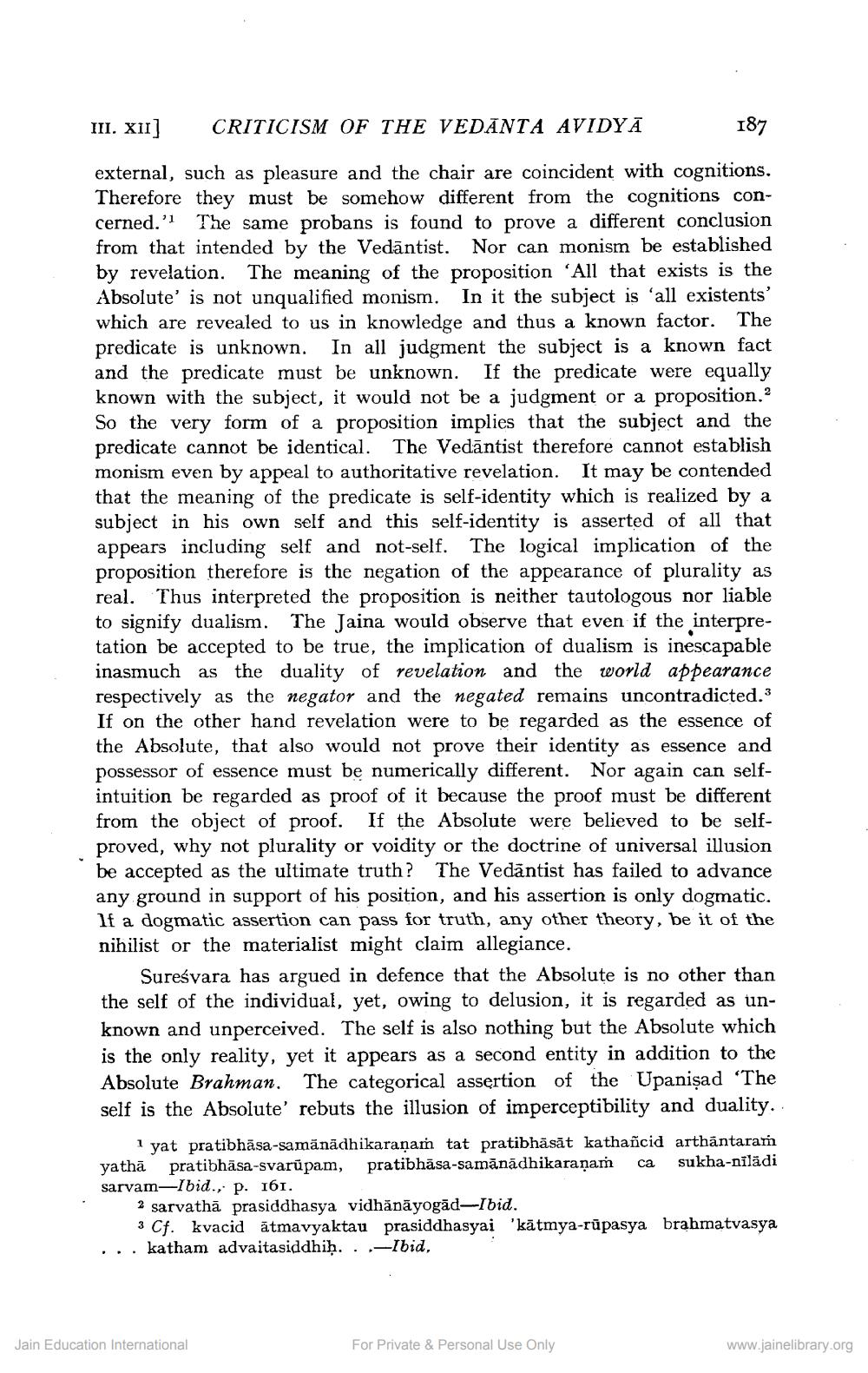________________
III. XII]
CRITICISM OF THE VEDANTA AVIDYĀ
external, such as pleasure and the chair are coincident with cognitions. Therefore they must be somehow different from the cognitions concerned.'1 The same probans is found to prove a different conclusion from that intended by the Vedantist. Nor can monism be established by revelation. The meaning of the proposition 'All that exists is the Absolute' is not unqualified monism. In it the subject is 'all existents' which are revealed to us in knowledge and thus a known factor. The predicate is unknown. In all judgment the subject is a known fact and the predicate must be unknown. If the predicate were equally known with the subject, it would not be a judgment or a proposition.2 So the very form of a proposition implies that the subject and the predicate cannot be identical. The Vedantist therefore cannot establish monism even by appeal to authoritative revelation. It may be contended that the meaning of the predicate is self-identity which is realized by a subject in his own self and this self-identity is asserted of all that appears including self and not-self. The logical implication of the proposition therefore is the negation of the appearance of plurality as real. Thus interpreted the proposition is neither tautologous nor liable to signify dualism. The Jaina would observe that even if the interpretation be accepted to be true, the implication of dualism is inescapable inasmuch as the duality of revelation and the world appearance respectively as the negator and the negated remains uncontradicted.3 If on the other hand revelation were to be regarded as the essence of the Absolute, that also would not prove their identity as essence and possessor of essence must be numerically different. Nor again can selfintuition be regarded as proof of it because the proof must be different from the object of proof. If the Absolute were believed to be selfproved, why not plurality or voidity or the doctrine of universal illusion be accepted as the ultimate truth? The Vedantist has failed to advance any ground in support of his position, and his assertion is only dogmatic. If a dogmatic assertion can pass for truth, any other theory, be it of the nihilist or the materialist might claim allegiance.
Sureśvara has argued in defence that the Absolute is no other than the self of the individual, yet, owing to delusion, it is regarded as unknown and unperceived. The self is also nothing but the Absolute which is the only reality, yet it appears as a second entity in addition to the Absolute Brahman. The categorical assertion of the Upanisad 'The self is the Absolute' rebuts the illusion of imperceptibility and duality.. 1yat pratibhasa-samānādhikaraṇam tat pratibhāsāt kathañcid arthantaraṁ pratibhasa-samānādhikaranam
sukha-nilādi
yatha sarvam-Ibid., p. 161.
2 sarvathā prasiddhasya vidhänāyogād-Ibid.
3 Cf. kvacid atmavyaktau prasiddhasyai 'katmya-rupasya brahmatvasya katham advaitasiddhiḥ. . .-Ibid,
pratibhasa-svarupam,
Jain Education International
187
For Private & Personal Use Only
ca
www.jainelibrary.org




